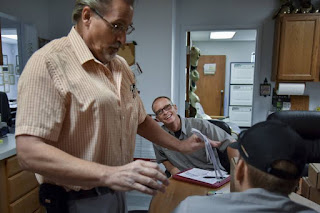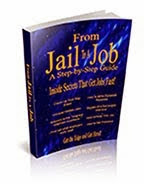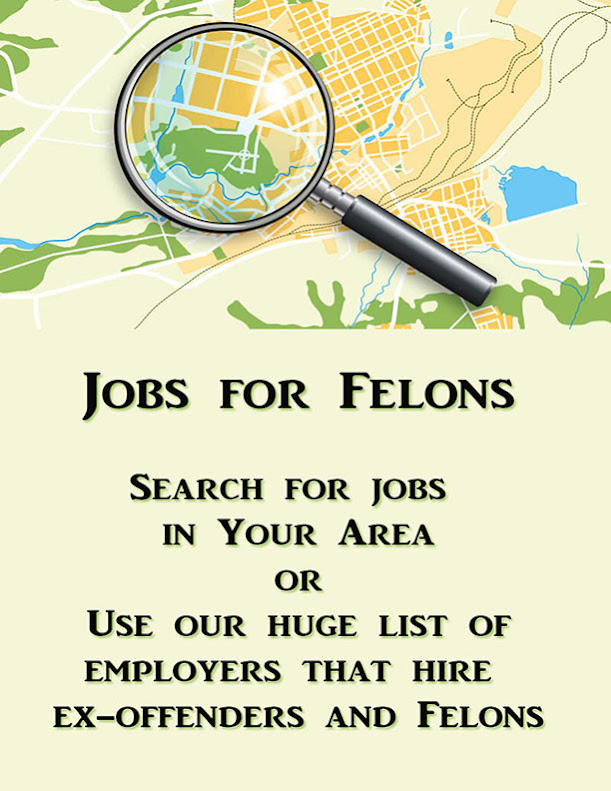More Firms Willing To Employ Felons
By Heather Long
The Washington Post
Ron Nelsen has been in the garage door business since 1976. He can’t recall a time when it’s been this difficult to find workers for his family business, Pioneer Overhead Door in Las Vegas.
When his assistant handed him Ian Black’s resume in April, it seemed like a godsend. Black had more than a decade of experience.
Then Nelsen noticed that all of Black’s recent jobs were at a state prison.
Black is an inmate at Casa Grande, a work-release facility that’s a seven-minute walk from Pioneer Overheard Door. Nelsen knew the place well. He and other business owners in the industrial neighborhood had protested Casa Grande’s arrivalin 2005.
But now his business was booming, and Nelsen needed workers who knew what they were doing. He decided to interview the inmate.
“Ian did well in the interview. He was articulate and respectful, and he told me he’d been an idiot when he was younger,” Nelsen said. Even so, Nelsen said, “I was still apprehensive.”
America’s unemployment rate is at a 17-year low — at 4.1 percent — and JPMorgan predicts it could fall to 3.4 percent this year, the lowest level since the 1969. Businesses large and small complain they can’t find workers, especially ones willing to do the arduous labor of landscaping, construction or stocking shelves. Companies have traditionally sought out immigrant labor to fill some of these jobs, but the Trump administration is aggressively going after businesses that use undocumented immigrants. In this political and economic environment, big companies like Walmart and Koch Industries and smaller ones like Pioneer Overhead Door are turning to an underutilized source of labor: inmates and the formerly incarcerated.
It’s a large, mostly untapped pool of workers: Roughly 20 million Americans have been convicted of a felony, according to research by University of Georgia Professor Sarah Shannon and her colleagues.
But even if the need for workers is great and attitudes are shifting, it’s not an easy decision. On his desk in a big warehouse a few blocks from the Las Vegas Strip, Nelsen has statues of saints and the Virgin Mary. A practicing Catholic, he asked friends whether he should hire a Casa Grande inmate. Almost everyone said yes, he should offer a chance of redemption. Among fellow business owners, opinions were mixed.
Nelsen has five workers who hang the garage doors at homes and commercial facilities such as warehouses and carwashes. It was a big risk, some said, to take on someone who has been convicted six times for nonviolent burglaries. Nelsen’s wife urged him to take a chance. So he offered Black a job, and Black, who has been in prison for the past nine years, accepted quickly, saying it gave him a “sense of purpose” for the first time in decades.
Black spends his nights locked in a cell, but on weekdays, he wears a dark gray Pioneer Overhead Door uniform with his name on it. Customers don’t know about his past. They only see the quality of the work now. “He’s my best worker,” Nelsen said. “Out of all my technicians, he’s the one I wouldn’t want to lose.”
Some companies ask job applicants immediately if they have ever been convicted of a crime to screen them out, but the ACLU and the NAACP say they have seen a “change of heart” in the past year, with more businesses willing to take a chance on people with criminal histories. “Businesses are beginning to ask: Why did we have such stringent bans?” says Ngozi Ndulue, senior director of criminal justice programs at the NAACP.
Increasingly, business leaders see hiring people with
criminal records as the right thing to do for America — and for their companies.
Formerly incarcerated workers are often hard-working and loyal, and not looking to jump to another employer. “We’ve hired a lot of
people with criminal records who have been good employees,” said Mark Holden, general counsel at Koch Industries. “What someone did on their worst day doesn’t define them forever.”
Black credits Nevada’s work-release program with breaking his “prison mind-set.” He had been in prison twice before for shorter stints that he says didn’t change him. He was released in 2008 with $25 to his name. With no money and few prospects, he went right back to what he knew before, the world of crime and drugs. Within two months, he was caught stealing again.
“I grew up in a very cliche childhood: Broken home. My mom passed away when I was young, and I bounced around a lot. I cared about nothing,” Black says. “I was a career criminal. It took a devastating amount of prison time for me to rethink my position in this world.”
Black has now spent nearly a decade in prison, staying clean from drugs and learning how to be “more thankful” and “not so judgmental.” He meditates and draws in the evenings. When he turned 40, he joined the prison squad that fights wildfires. A year later, he was able to apply for Casa Grande and get into a job orientation class called Turning Point. “I want to be able to look myself in the mirror. I want to be respectable,” Black, now 42, says.
Most of the money he earns goes to pay restitution to people he stole from and to the state of Nevada to cover rent at Casa Grande. But he has saved about $700, which he believes will be life-changing when he gets out of prison.
Black is among the 2.3 million Americans behind bars, about 95 percent of whom will be released. Finding better ways to get people from prison into jobs is a cause that has united conservatives, especially religious and business leaders, with progressives. It has even made it onto President Trump’s agenda.
“Many prisoners end up returning to crime, and they end up returning to prison,” Trump said at a White House event this month on prison reform. “We can help break this vicious cycle through
job training.”
Only 45 percent of men released from prison had a job eight months later, according to a 2008 study by the Urban Institute’s Justice Policy Center. There’s a major push to change that now that the economy is far better than it was a decade ago. Some of the most outspoken advocates are conservative power brokers like the Koch brothers and Clay Bennett, owner of the Oklahoma Thunder basketball team. Last summer, Bennett invited ACLU fellow Megan Marcelin to speak to a large gathering of Oklahoma business executives to make the case for hiring people with criminal pasts. She found a receptive audience.
“This would never have happened a year ago,” says Marcelin, who is now with JustLeadershipUSA, a criminal justice reform advocacy group. “Businesses and corporations on the right are really playing a role in getting behind this issue.”
Many conservatives, including Trump, see prison-to-job initiatives as part of a larger goal of reducing prison and welfare costs and lowering unemployment.
Walmart and Koch Industries no longer ask about criminal histories on their job applications. That small step has given many more people a chance to get in front of a hiring manager. Walmart and Koch don’t do a full background check until the final stages of the hiring process, when they already have a sense of an applicant.
This is part of a broader movement known as “ban the box,” a reference to removing the check-box question on applications.
President Barack Obama banned the box for most federal government jobs. A grass-roots movement has advocated for changes in state laws as well. “It’s common sense: We want former prisoners to be able to support themselves,” says Beth Avery, a staff attorney at the National Employment Law Project. “That’s good for everyone in the long run. It reduces recidivism and public spending on incarceration.”
The federal government doesn’t track how many people with criminal histories have been hired across the country. But studies of cities such as Minneapolis that have banned the box found that more than 50 percent of people whose applications had been flagged with “concern” because of a prior conviction were hired after the law changed.
Nelsen says he’s become more aware of what these reforms can do for society — and for businesses.
“I was originally negative on Casa Grande,” Nelson said. “Now I’m one of the biggest beneficiaries of it.”
The ACLU and Koch Industries are also pushing for people with criminal pasts to be able to get state licenses to do everything from plumbing to being makeup artists to being security guards. Nearly 30 percent of U.S. jobs require a state license, according to the Brookings Institution, but some states prevent felons from getting licenses.
Another hurdle that remains is racial prejudice. Studies have found it’s twice as easy for white inmates and formerly incarcerated Caucasians to get jobs than for African Americans. Research by economists at the University of Virginia and the University of Oregon last year found that banning the box caused some employers to discriminate against African Americans and Latinos because hiring managers made assumptions about who was more likely to have a criminal record.
Black feels lucky to be working again and is preparing for a parole hearing in February. He has been mentoring a 20-year-old named Eric Fernandez, who recently joined Pioneer Overhead Door. Black showed him what tools to buy and taught him all the different types of garage door springs. In exchange, Fernandez drives the truck, since Black can’t get his driver’s license back yet.
What’s it like to be working with Black? Fernandez shrugs, signaling he hasn’t given it much thought.
“He’s pretty funny,” Fernandez says. He looks over at Black and they laugh in unison, pausing for a few seconds in the Las Vegas heat before getting back to work.
More Firms Willing To Employ Felons
Eric Mayo
felons















